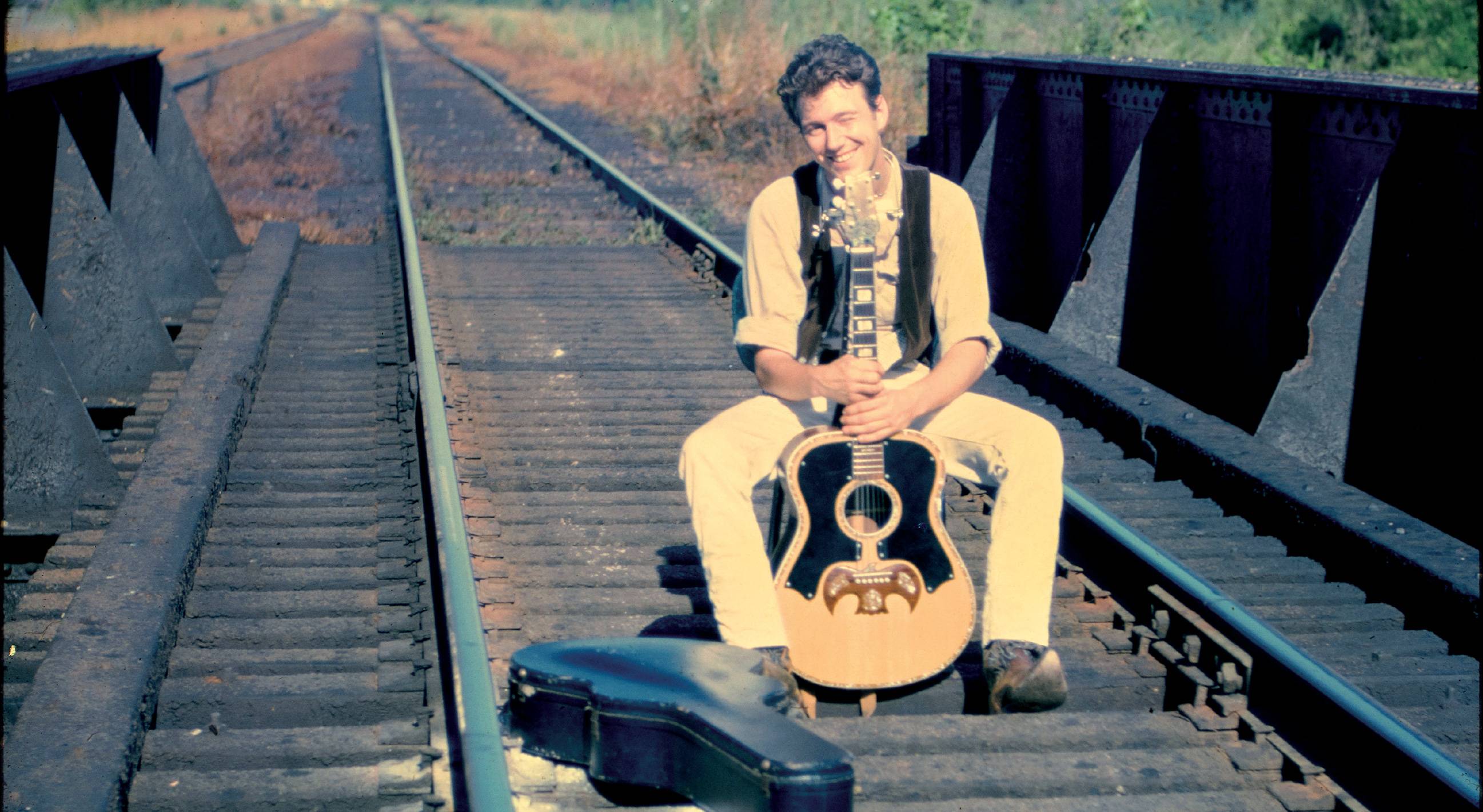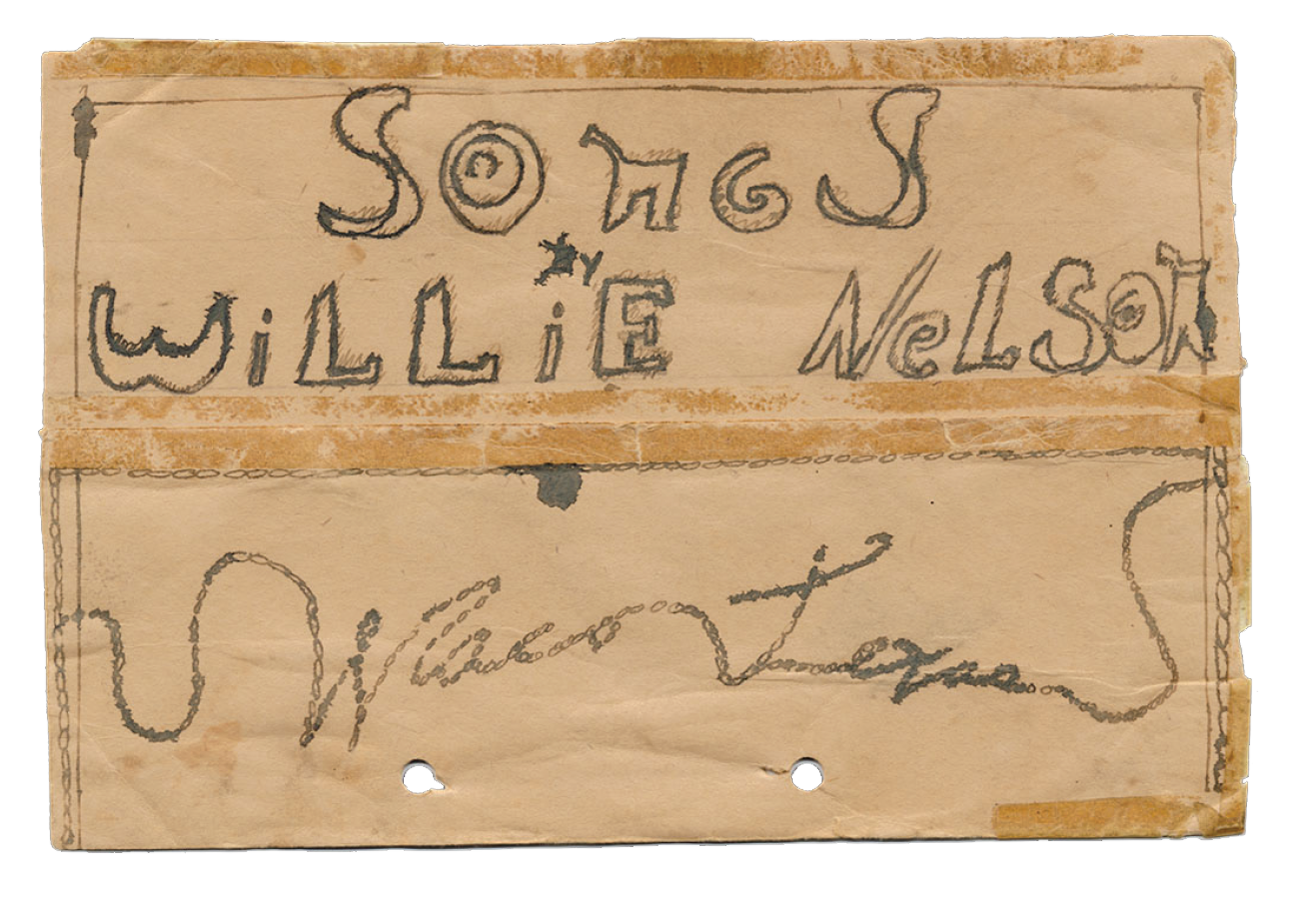
A treasure trove of song
by Hector Saldaña
Texas Music Collection lives at the Wittliff
In October 2017, I became the first curator of the newly founded Texas Music Collection at The Wittliff Collections, the renowned research center and archives on the seventh floor of the Albert B. Alkek Library at Texas State University. It’s an awesome joy — and responsibility — to advocate for Texas music, musicians, and fans. The Wittliff Collections, established by Austin screenwriter and photographer Dr. Bill Wittliff and his wife, Dr. Sally Wittliff, is most famous for its Southwestern Writers Collection, Southwestern & Mexican Photography Collection and, of course, the Lonesome Dove Collection. I’ve come to learn that music has always lived at The Wittliff.
One of its most impressive jewels is a weathered, hand-illustrated songbook by Willie Nelson on display that dates to when the aspiring musician was about 11 years old. Its cover page is simple – and direct: "Songs by Willie Nelson: Waco, Texas." Drawn in pencil, "Waco" and "Texas" look to be part of a whipped lariat; the small "n" in the word "songs" is in the outline of a pony. Its index (with its neat Roman numerals), song titles and lyrics are equally revealing. Such titles as "Faded Love and Wasted Dreams," "Hangover Blues" and "I Guess I was Born to be Blue," show the roots and creativity of the beloved and legendary redheaded stranger.
The songbook is but one example of the holdings of the new Texas Music Collection, and it barely scratches the surface when it comes to Nelson. Bill Wittliff, whose friendship and history with Nelson dates to decades ago riding on the tour bus with the country singer and directing him in the movie "Red Headed Stranger," acquired handwritten lyrics, including "On the Road Again," as well as unpublished material. Scribbled on hotel stationery, tour itineraries, and napkins, they offer insight into the creative process. When the Grammy-winning TexManiacs visited and performed last year at The Wittliff, the musicians were blown away when they saw the Nelson collection.

In January, The Wittliff Collections acquired rare early recordings of Jerry Jeff Walker, including a coffeehouse performance in New Orleans in 1964 and a 1965 recording of early songs for a songbook. They are the earliest known Jerry Jeff Walker recordings.
The newly acquired audio material has been digitized and will soon be available for researchers. Additionally, a handful of rare tapes in the Walker collection covering the crucial period 1966-1967 are currently being restored. The goal of the Walker exhibit is to show how the mercurial singer-songwriter represents the universal youthful dreams of adventure, self-discovery, and reinvention, as well as showing why he should be ranked with the likes of contemporaries Bob Dylan and Joni Mitchell.
A recent exhibit – "Viva Jerry Jeff: The Origins and Wild Times of a Texas Icon" sheds new light on this small-town kid named Ronald Clyde Crosby from upstate New York. He was a high school basketball star who went AWOL from the Army National Guard in 1963, worked under an alias as a street singer named Jerry Ferris, joined an acid-rock band and wrote the timeless "Mr. Bojangles" — and became the guiding light of Austin’s progressive country and redneck rock movement.
Walker, who made a major donation of lyrics and custom handmade Charlie Dunn cowboy boots in 1991, donated his entire archive in 2017. The collection is made up of master tapes, photographs, handwritten lyrics, memorabilia, manuscripts, and rare artifacts.
But The Wittliff Collections — which functions as a research center, museum, gallery space, exhibit space, lecture hall, music venue, collections and library, and which is being expanded to take up the entire seventh floor of the building in the next few years — is more than outlaw country.
The Wittliff works closely with Texas State University’s Center for Texas Music History to celebrate and preserve the amazing breadth of Texas music. For example, a recent exhibit and panel, "Legends of Tejano: Highlights from the Ramón Hernández Archives," made the case that the pioneers of Tejano, conjunto, and norteño music deserve the same serious study, respect and preservation as the works of Nelson, Walker, Stevie Ray Vaughan, and Ray Benson’s Asleep at the Wheel.
Dig deep into The Wittliff’s music collection and one finds the handwritten scores of silent film era musician and composer Cenobio Hernandez and author Joe Nick Patoski’s collection of Selena and Doug Sahm materials.
My desire as Texas music curator is to celebrate all Texas music and expand the definition of what that means in the 21st century. Major acquisitions are on the horizon, as well as some surprises, as the Texas Music Collection rolls out. ✪